“Everything from robust clean tones to incendiary overdrive right at your fingertips”: The Jet takes flight as Gretsch refreshes the singlecut for Streamliner and Electromatic series – and there is a single-pickup rock 'n' roll machine FTW
Fresh pickups, wraparound bridges, and just look at all those different colours...
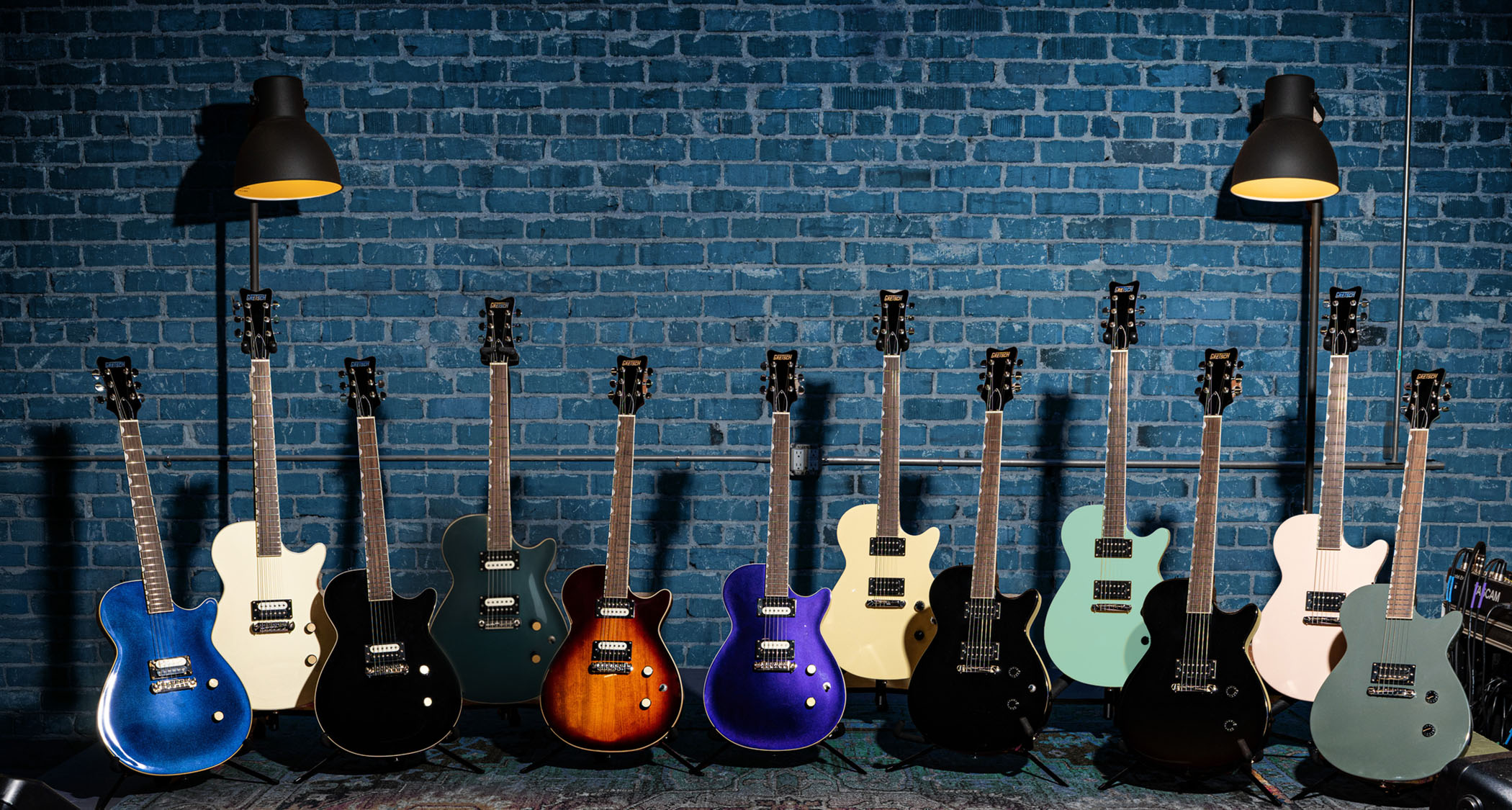
Gretsch has ushered in a new era for its storied singlecut electric guitar, offering the relaunched Jet in its Electromatic and entry-level Streamliner series, with dual-humbucker and single-humbucker options, wraparound tailpieces and vintage mojo as standard.
There is about these singlecuts that will be familiar to longtime fans of Gretsch guitars. The shape is reassuringly Jet. You will use it for all the same sounds, rock ’n’ roll, punk, indie, rock, alt, blues and more. In some senses it is a case of meet the new Jet, same as the old Jet, but this new drop has a heap of new features – and we just can’t get passed the option of having a single-pickup Jet.
The range comprises the Streamliner Jet, Streamliner Jet Cub, and a single-pickup Streamliner Jet that retails for just $189, making it a very viable electric guitar for beginners.
We also have the more serious Electromatic equivalents. If you are wondering what the key difference is between the Streamliner Jet and the Jet Club, it principally comes down to the body’s top; on the Jet it is carved, on the more affordable Jet Club it is flat. On the Electromatic series, you will find a chambered mahogany body with a maple top on the Jet, all mahogany with the Jet Club.
Gretsch has been knocking it out the park with the Electromatic series for some time (actually, same goes for the Streamliners but we’ll get onto those in a minute).
These look the bee’s knees, the cat’s pyjamas, and for £599/$579, you would be hard pressed to find a cooler guitar than the Electromatic Jet in Vintage White [pictured]. Maybe the same guitar in Cadillac Green? The finish options also include Bristol Fog and Dark Cherry Metallic do not disappoint.
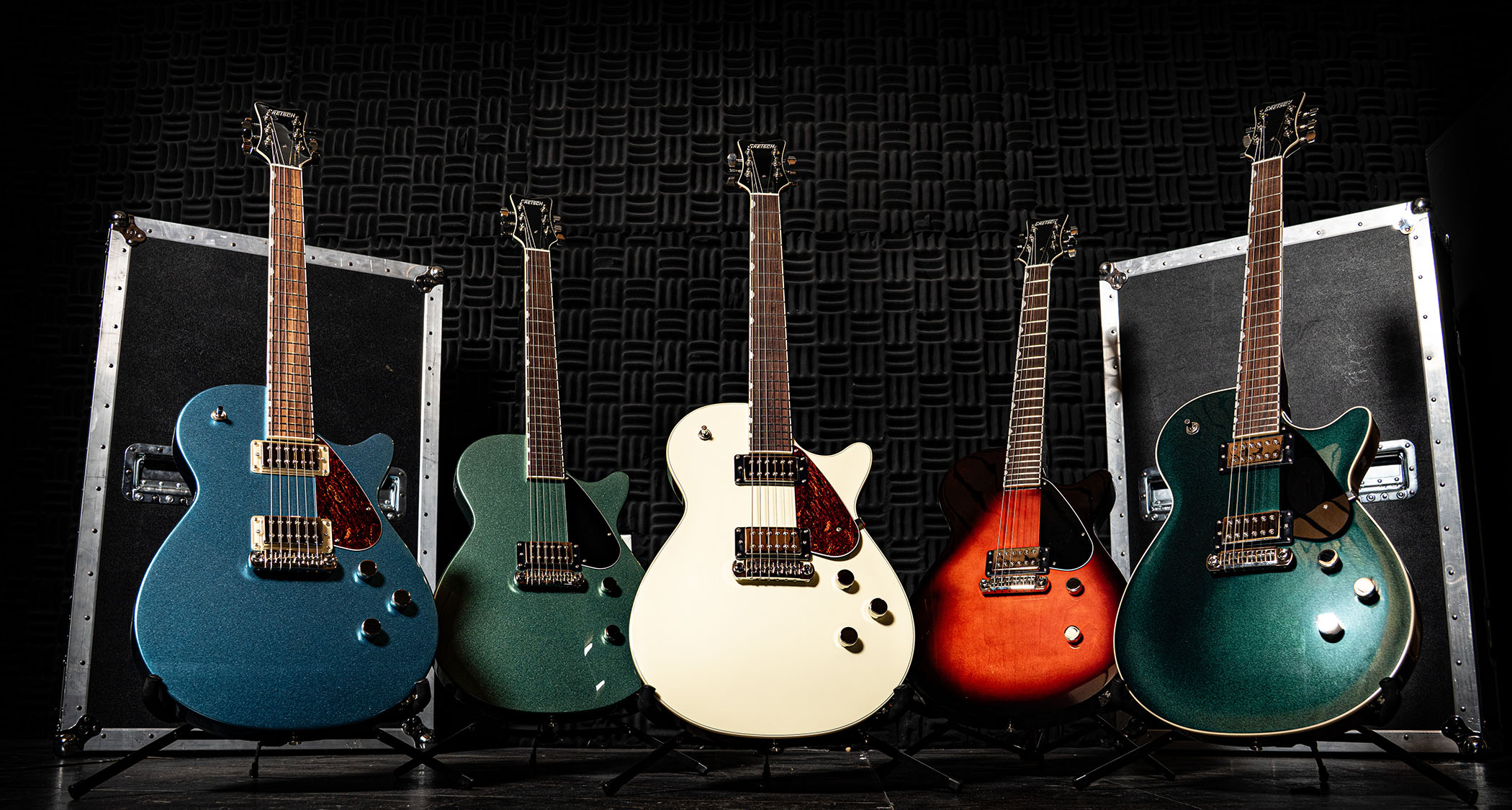
The big headline items on these new models are the electric guitar pickups. The Electromatic Jets have PureVolt Twin Six humbuckers, with Gretsch really jamming the bridge humbucker tight up against the bridge.
Want all the hottest music and gear news, reviews, deals, features and more, direct to your inbox? Sign up here.
The bridge itself is an adjustable Lockdown wraparound bridge that promises “enhanced sustain and note attack” – not to mention solid intonation and fuss-free string changes, and further establishing the idea that these guitars – all of ‘em – are throw-and-go platforms for high-volume rock ’n’ roll.

Those pickups are interesting. The PureVolt Twin Six neck humbucker has an Alnico IV magnet, while its bridge counterpart has an Alnico V. Both have 12 adjustable pole-pieces and Gretsch’s notes on their tone say you’re in for “incredible balance and raw humbucker power with amazing clarity and versatility”.
The pickups have been wax-potted to reduce unwanted noise. What did we say about high-volume rock ’n’ roll?
Well, coil-splits on those humbuckers make them even more versatile, and there’s a treble bleed on the master volume so you don’t lose any of that top end as you roll back the volume.
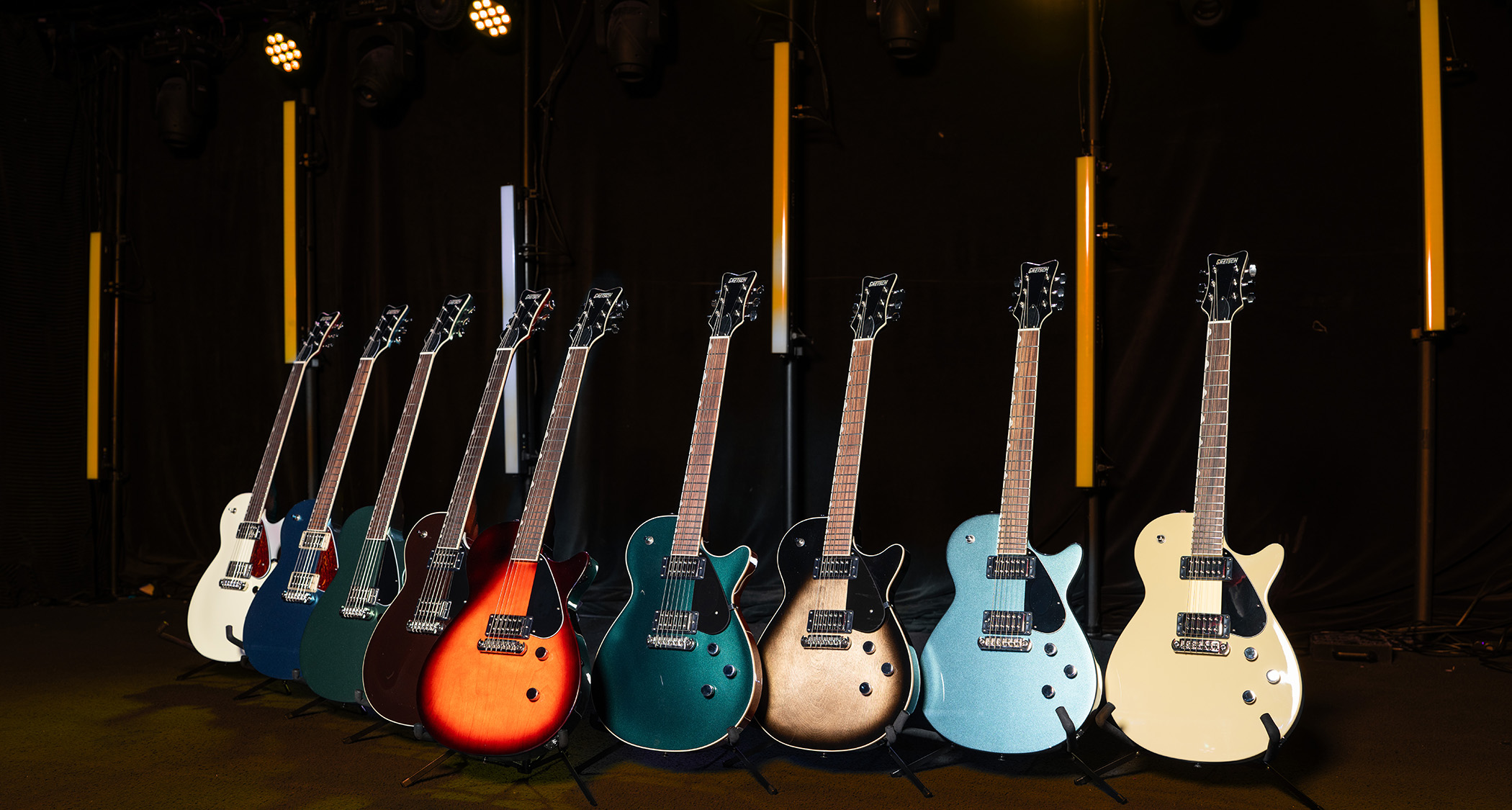
One of the beauties of the Electromatic Jets is that chambered build. It’s ostensibly a solid body but that takes some of the weight out, and the contouring helps with that, too. These are typically very player-friendly.
The rounded “C” profile neck gives you plenty of mahogany to hold onto without crowding your palm, splitting the difference between modern thin and the fatter ‘50s profiles, with a sculpted heel to help your fretting hand reach the dusty end of the fingerboard. The is topped by a rosewood fingerboard with single-ply aged white binding. You also get a GraphTech NuBone nut.
Colour finishes for the Electromatic Jet Club comprise Druid Green, Buttercream and Riviera Blue, the latter fitted with a tortoiseshell pickguard, the former two with black. These are priced at £549/$499. The single-pickup Jet Club is priced £499/$479 and is available in Steel Olive and Claret Burst.
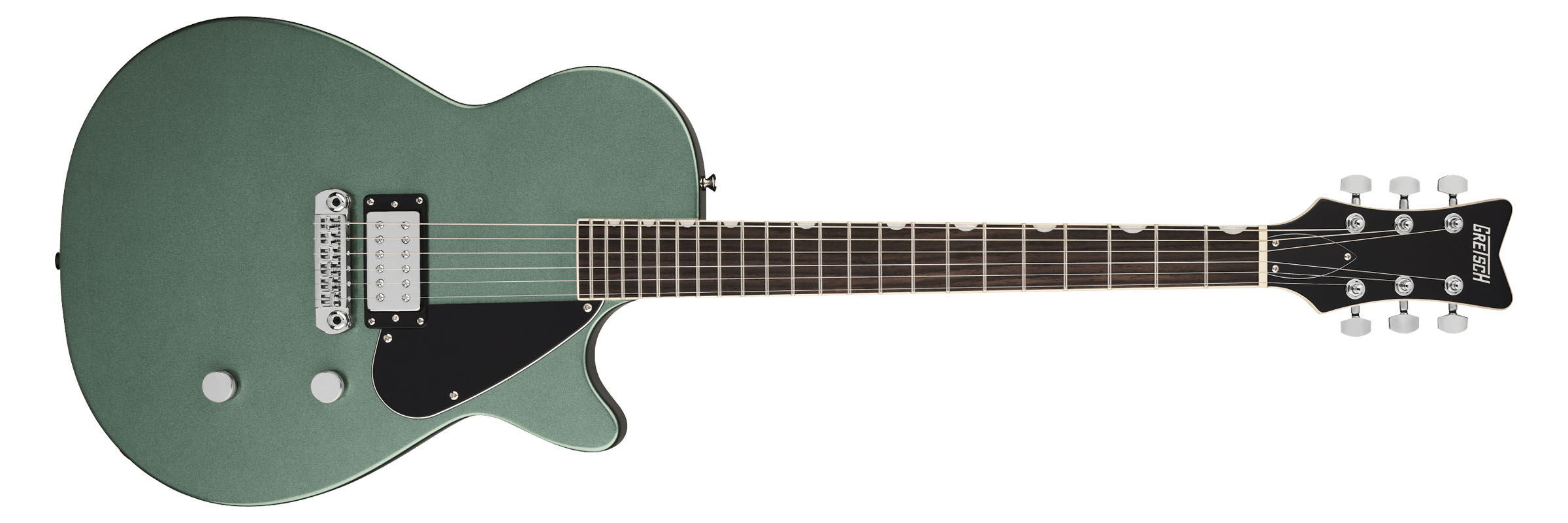
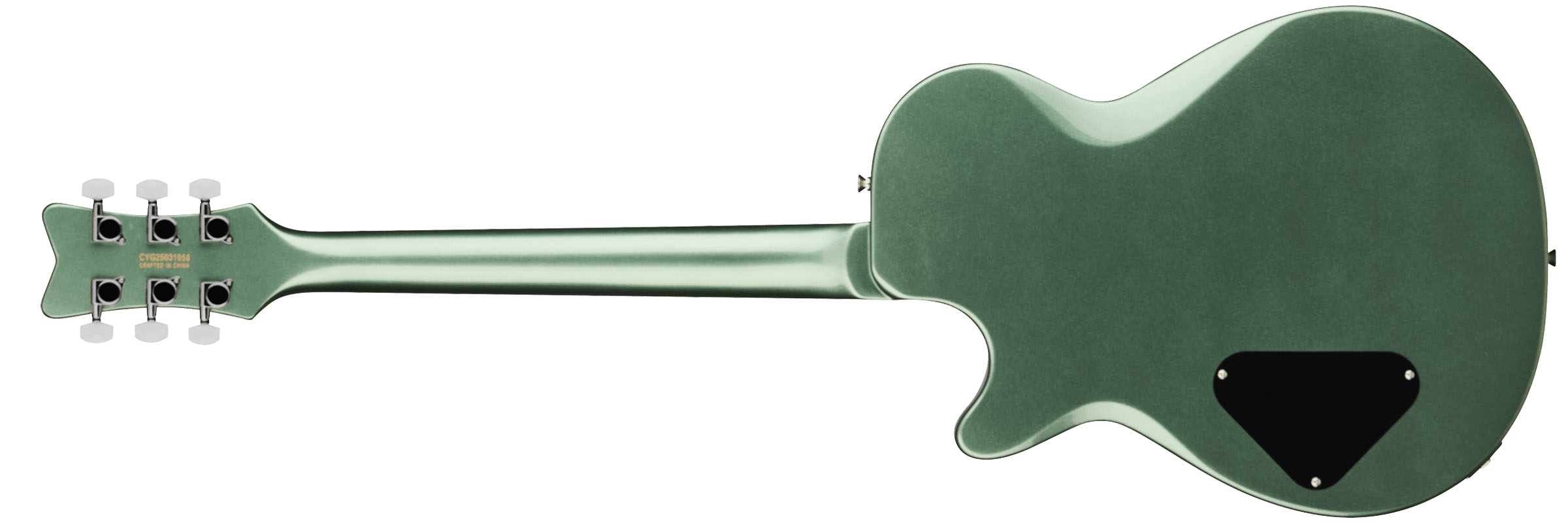
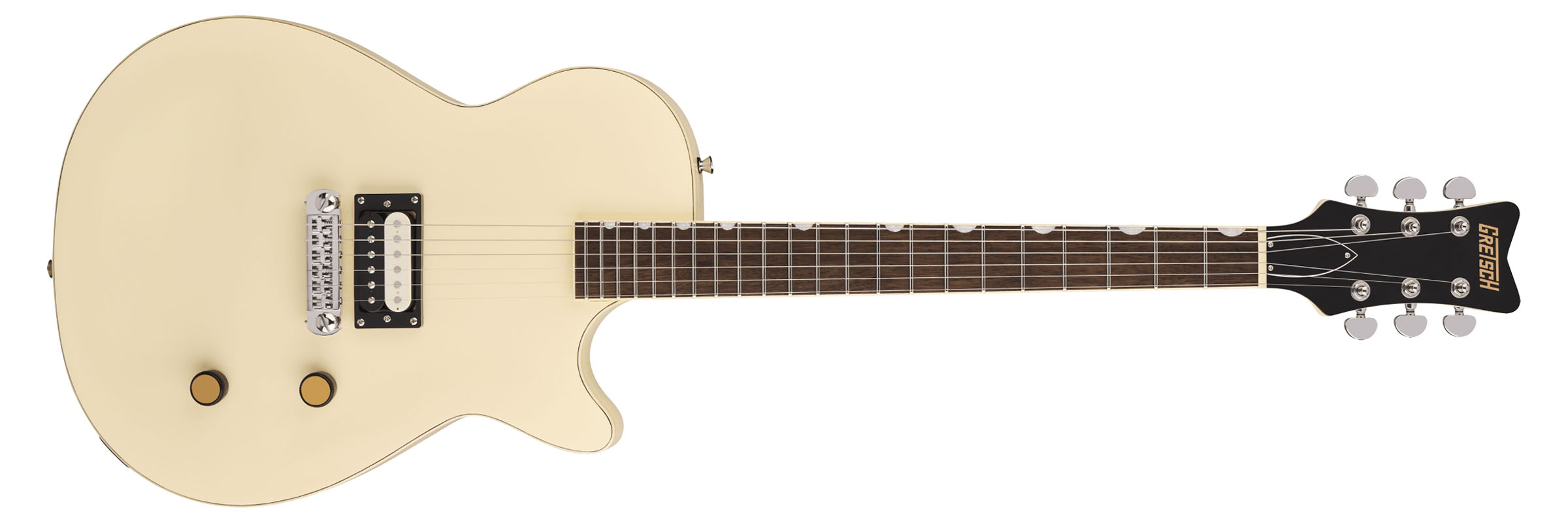
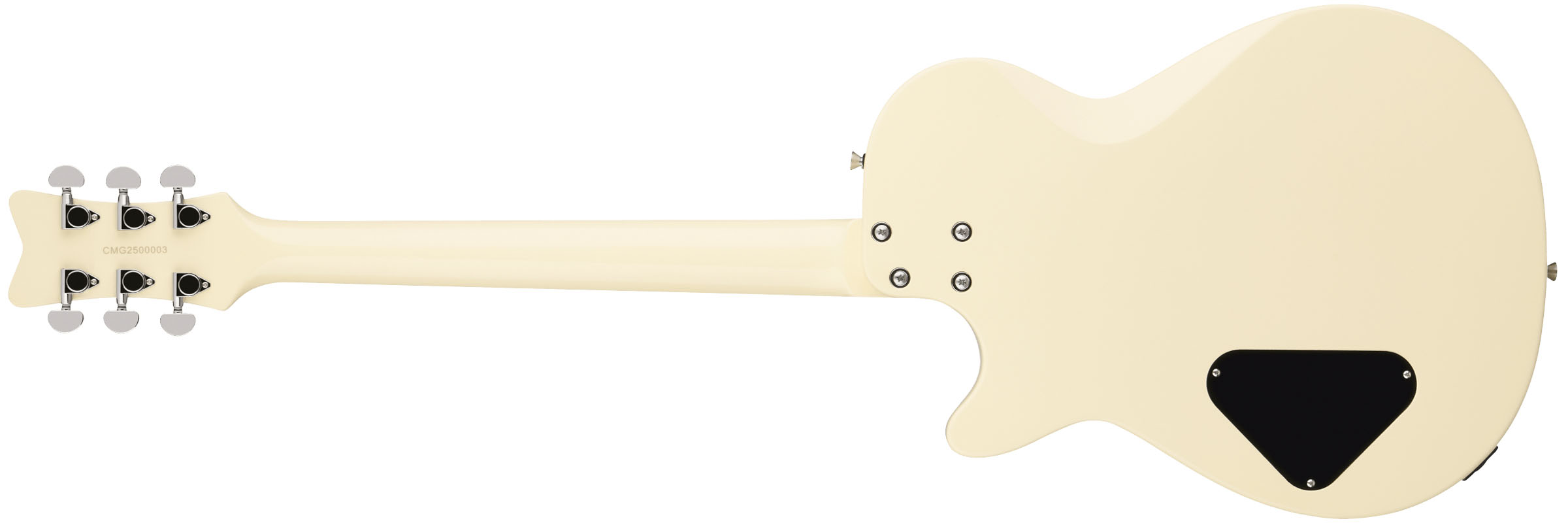
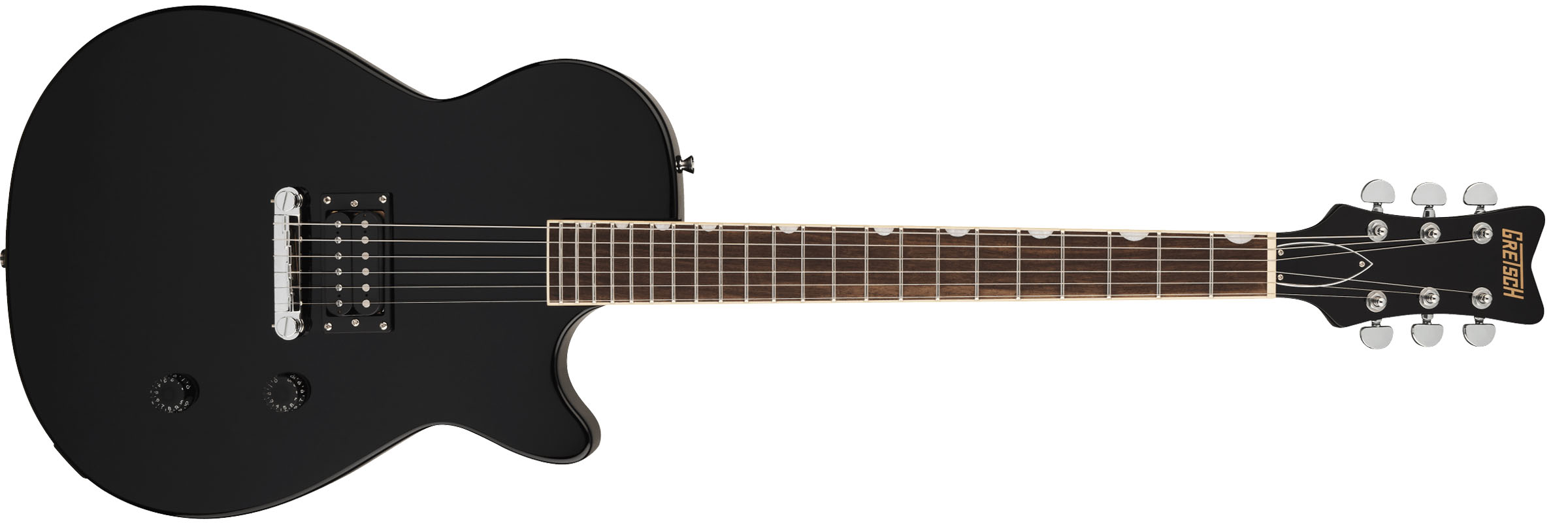
Now for the Streamliners. Again, the headline items are the pickups, and while the ceramic humbucker does not scream traditional Gretsch (nor do the PureVolt Twin Sixes for that matter), they do scream. Except them to be hot and punchy. “Atomic overdrive” is a descriptor used by Gretsch, and for a brand that came out of the Atomic Age that seems apt.
These are more stripped-down versions of the Jet than the Electromatics, with bolted-on necks where the Electromatics are glued-in. The fingerboards similarly have a 12” radius but swap out rosewood in favour for Indian laurel – which is to be expected at this price point. But they are no less considered.
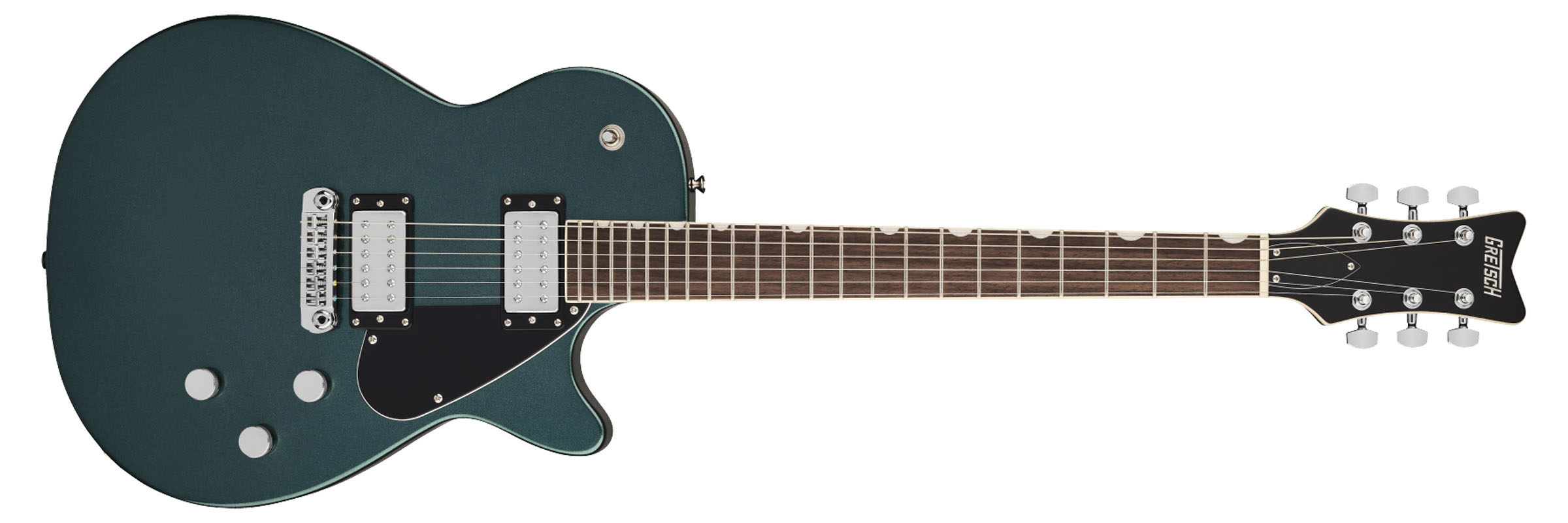
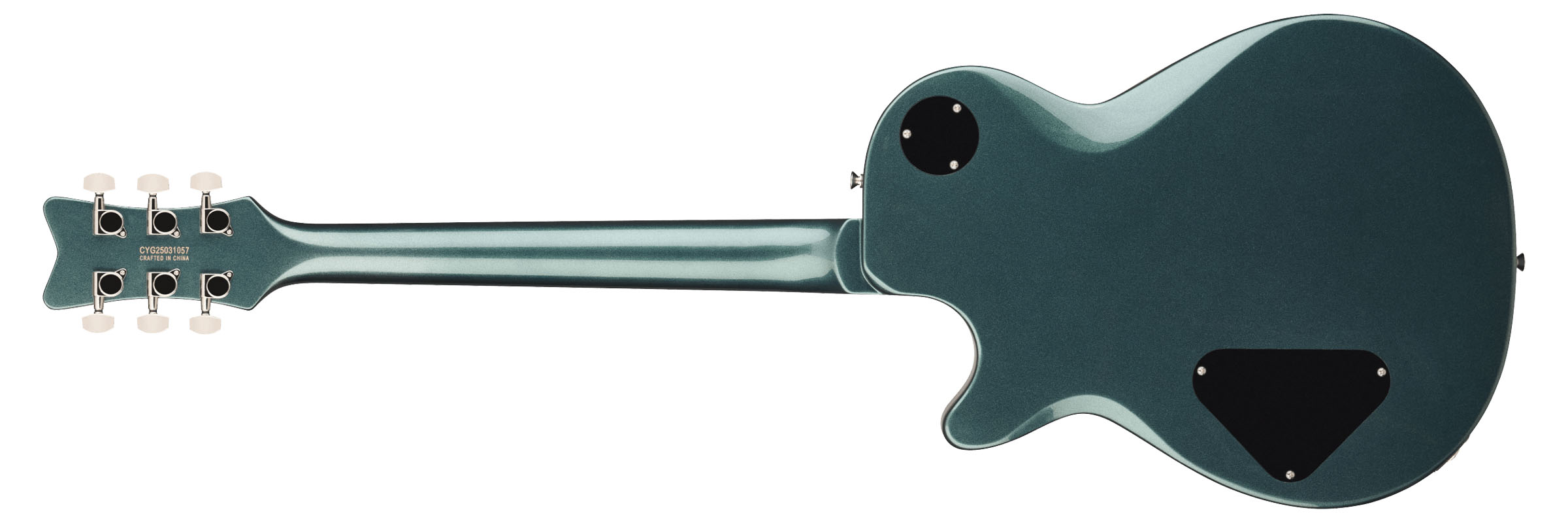
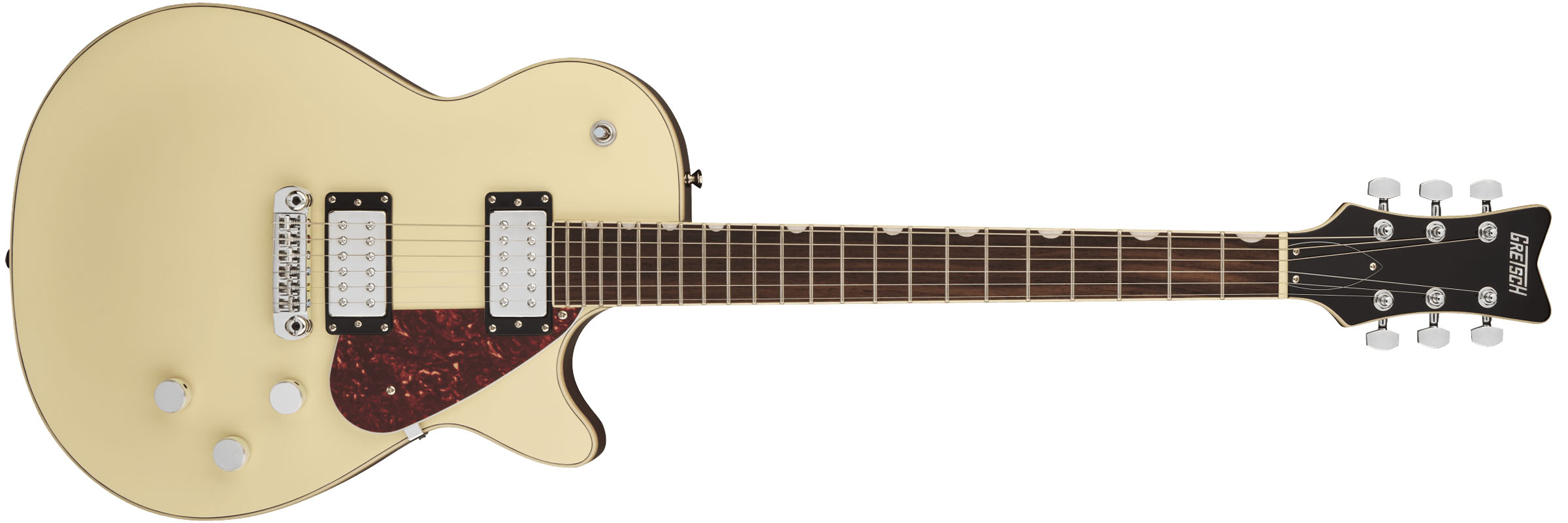
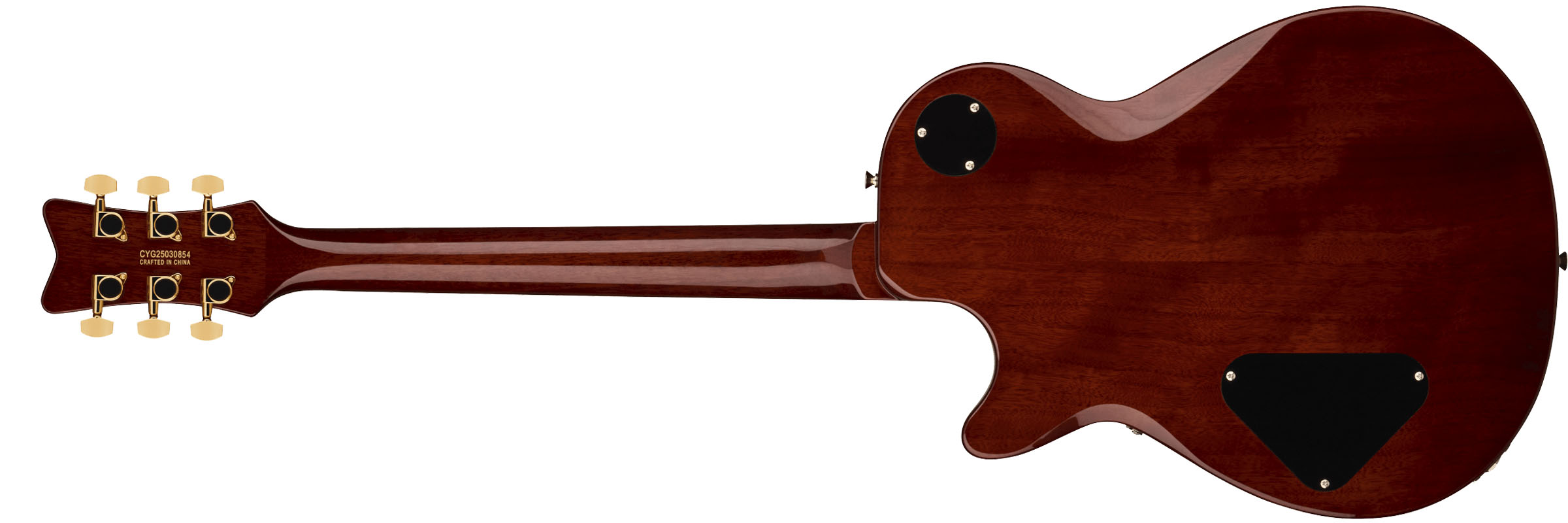
The Pitch-Perfect head angle enhances tuning by reducing string tension and slippage.
The necks are mahogany and fashioned into a “Fast C” profile, i.e. a mainstream and beginner-friendly proposition. You have the contouring on the back of the body to aid ergonomics, the Graph Tech NuBone nut, the cool colour finishes.
You can get the Streamliner Jet Club in Sea Foam Green, Aged White and Jet Black, and it is priced £349/$209. The single-pickup version is $189/£319 and comes in Jet Black, Shell Pink and Olive Drab.
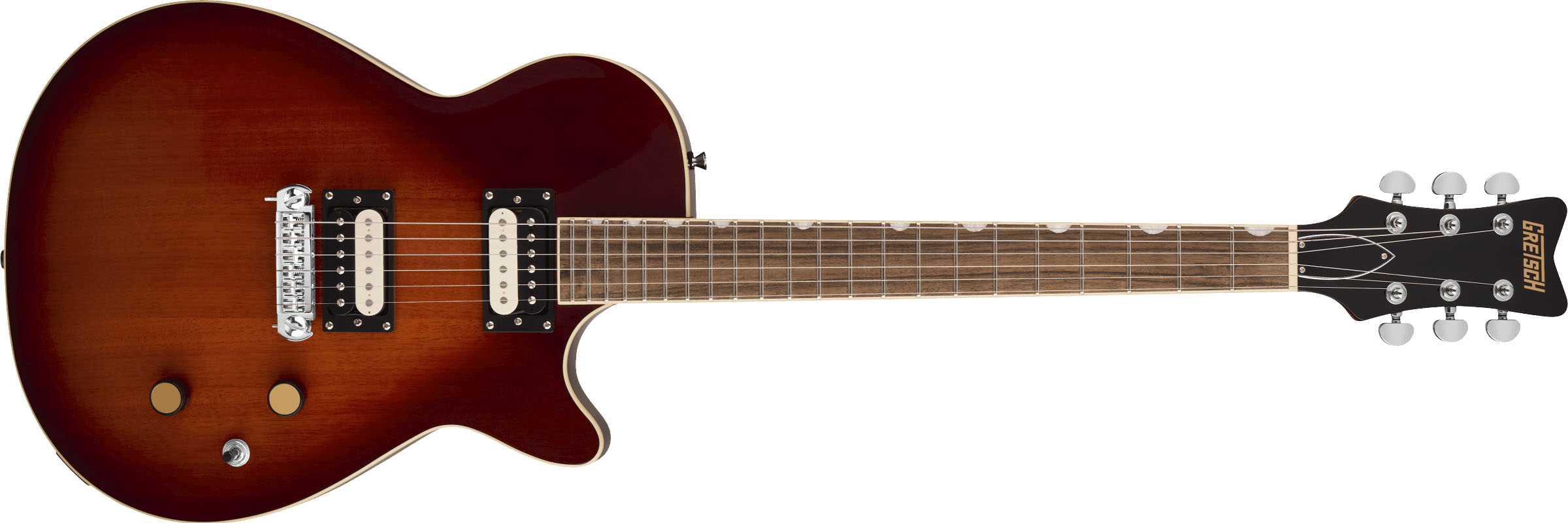
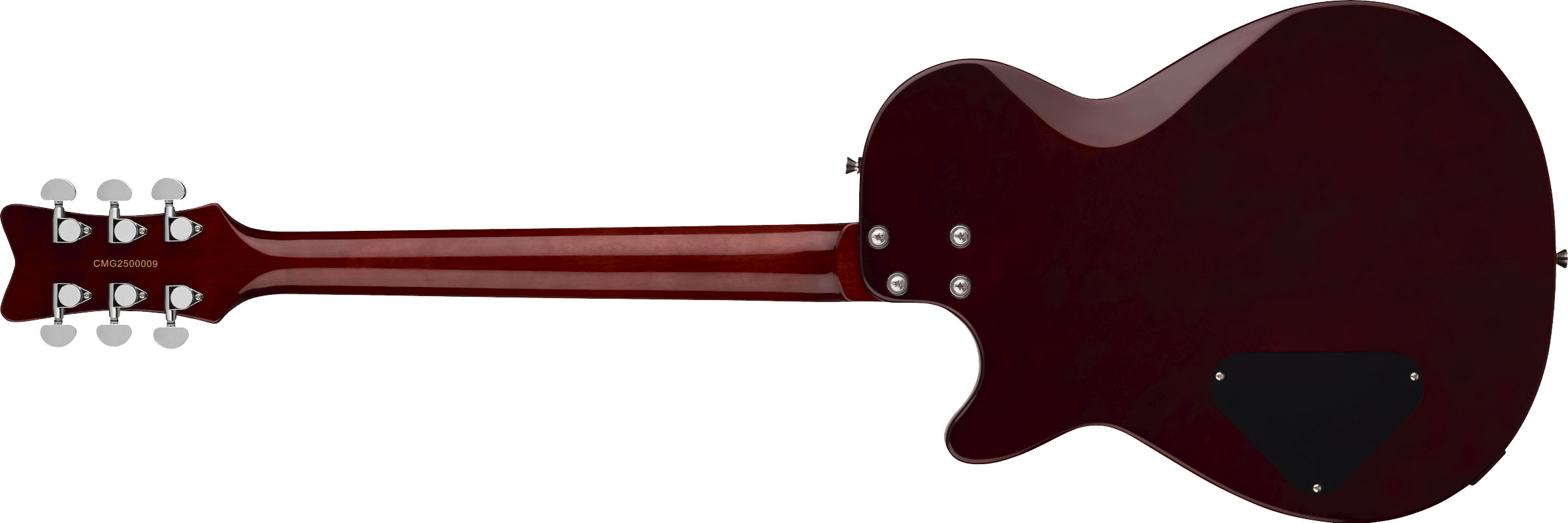
If your budget stretches to £399/$319, you can get the more upscale Streamliner Jet (bound body, carved top) in Duo-Tone Burst, Nightshade Purple, or Gunmetal, which might give Cadillac Green a run for its money.
These new Jets look like they could give most guitars in this price range a run for their money. Check ‘em out at Gretsch.
Jonathan Horsley has been writing about guitars and guitar culture since 2005, playing them since 1990, and regularly contributes to MusicRadar, Total Guitar and Guitar World. He uses Jazz III nylon picks, 10s during the week, 9s at the weekend, and shamefully still struggles with rhythm figure one of Van Halen’s Panama.
You must confirm your public display name before commenting
Please logout and then login again, you will then be prompted to enter your display name.
